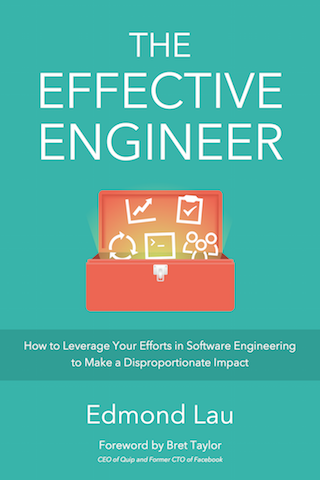Breaking Out of the Stories We Make Up About Ourselves

This is a story about a box that I’ve been hiding in and how I’ve been fighting to break free.
“What’s one thing you learned about yourself in the past year?,” a close friend asked during my birthday dinner.
It was a well-timed question. The past year has been one of intense personal growth. I’ve become more aware of my impact on people, my limiting beliefs, and my dreams, and I also feel more agency than ever to shape my own story. My journey has felt as disorienting as I imagine it must’ve been for Neo to learn about the Matrix, take the red pill, and discover the truths hidden in plain sight.
I’ve learned that I hate the feeling of being boxed in. And some of the most restrictive boxes we find ourselves in are actually ones we’ve created for ourselves. We feel safer in these boxes, but these boxes — these limiting beliefs — also hold us back from playing bigger and living fully.
Here’s one of the boxes I’ve been hiding in, where the light is finally starting to shine through.
For the past year, I’ve been struggling with the limiting belief that “success creates distance” — that if people close to me know that I am successful, I will isolate myself from them. And because what I really want is to connect with people, I have to limit how successful people perceive me to be. I have to be smaller than I really am.
And so I dodge the spotlight. I hide in my safe, little box.
Earlier this year, I was interviewed by a New York Times reporter and mentioned in a piece about how interpersonal skills played a critical role in software engineering.
I felt so excited! The Effective Engineer was mentioned in the New York Times! The article even talked about my new adventures in coaching, which has become a growing part of my work and life.
And yet, even mid-celebration, a violent battle raged inside me of whether to share the article with people I knew. The inner critic inside me had so much judgment. Who do I think I am to direct all this attention on myself? Will I become one of those people who others feel keep posting and bragging on social media? I didn’t know how to celebrate my accomplishment without judgment. It took multiple conversations with close friends and an hour-long call with my coach to finally find the courage to share something that was clearly important to me.
This wasn’t an isolated incident. I can market myself to strangers, but I have a tendency to hide successes from people I care about or work closely with. I want to succeed, but I don’t want to seem like I succeed so much that I alienate myself. And so I do this awkward dance of succeeding quietly.
A couple years ago, I was invited to give an Authors@Google talk at Google’s headquarters. I felt honored and was so thrilled! And yet, when it came to sharing the occasion with my co-workers at Quip, I just snuck in a short one-liner into the “Work from Home” chat room that betrayed none of my excitement. Better not stand out too much!
Casually mentioning an external talk in a “work from home” context is a pattern for me over the years. I worked from home another day to give a tech talk at Facebook. Another to do a Q&A at Quora. And another few to teach a series of workshops on effective engineering at Pinterest. Not once did I really own up to my excitement.
Whenever people ask me how my self-published book is doing, I downplay it with a short “Good!” and shift to another conversation topic. I do that even though my book is actually doing freaking awesome and generated more revenue in its first year than my startup salary. I don’t share how important writing and self-publishing the book is to me and how proud I am that I figured out how to do everything from collecting stories to writing to typesetting to finding an editor to marketing to actually launching the two-year project.
Hiding’s not fun. I’m tired of it. It tears at me inside just writing about and acknowledging the box I put myself in. I literally tear up every, single time I re-read that last paragraph — thinking about what parts of me I’ve buried rather than celebrated because of that one limiting belief.
When I let the limiting belief of “success creates distance” dictate what I do, I play small. I pretend that my successes don’t matter as much to me so that I “fit in” and don’t risk disrupting some imagined balance that might isolate me from other people.
Where does this belief come from? Maybe it stems from being the nerd kid who was consistently at the top of the class academically and who never really felt like he fit in anywhere (except for my high school Speech and Debate Team). Ultimately, it doesn’t really matter. I made up a story that my good grades created isolation, and it’s just that — a story. There were plenty of other, academically talented students who seemed like they belonged just fine.
What’s sinking in for me this past year is that my hiding serves no one. It doesn’t serve me showing up in the world. It doesn’t serve the ambitious impact that I want to create in the people around me. It doesn’t serve the people who actually look up to me.
I recently read Brené Brown’s book, The Gifts of Imperfection, and one passage that resonated with me is her observation that pretending things aren’t important when they actually are minimizes joy and also in itself creates isolation:
[P]laying down the exciting stuff doesn’t take the pain away when it doesn’t happen. It does, however, minimize the joy when it does happen. It also creates a lot of isolation. Once you’ve diminished the importance of something, your friends are not likely to call and say, “I’m sorry that didn’t work out. I know you were excited about it.”
Maybe success creates distance. But it also creates connection. Only if I let people know what’s important to me is a real, authentic connection even possible.
Some people reading this story will find this behavior irrational. “Edmond, I don’t see what the problem is. Just share already!” you might think.
But here’s the tricky thing about deep-rooted, limiting beliefs that I’ve discovered in my work as a leadership coach. Limiting beliefs are intensely personal, highly emotional, and very hard to logically argue your way out of – even if you’re an engineer – because they are so ingrained. To anyone else, these beliefs may seem absurd, but that doesn’t make them any less real.
And I’ll let you in on a secret: everyone has them.
Whenever we don’t say the things that need to be said, do the things we want to do, or be the people we want to be, there is a limiting belief lurking somewhere, holding us back. These invisible boxes we put ourselves in all tie back to one thing — a belief that we’re not good enough. We make up stories that if we actually said and did and were those things, we wouldn’t belong. As a result, we hide bits of ourselves. We don’t bring our full selves to our work or to our lives, and we’re not as authentic or effective or happy as we could be.
To escape a box, we each need to find an alternative perspective — a new belief — that so strongly resonates with us that we can use it to replace the old one.
When I wrestle with this particular limiting belief of mine, the person that I think about is Sheryl Sandberg. In Lean In, she shares a story about how she was named in the top five of Forbes’s annual World’s Most Powerful Women list. Whenever someone came up to her to congratulate her, she felt embarrassed and exposed as a fraud. She called the list ridiculous and downplayed it. It took an assistant taking her aside and telling her that her discomfort and insecurity weren’t serving anyone, for her to finally shift to saying a simple “thank you” instead.
“What would Sheryl Sandberg do?” has become mantra for me whenever my inner critic tells me play small. I admire the vulnerability in her stories and how much of a role model she is for people in the world. I think about how tragic it would be if the world were deprived of the opportunity to learn from her had she chosen to hide.
And that inspires and pushes me to play big — to really own who I am, the role model and leader I want to be, and the impact I want to create in the world around me.
We make up so many stories about ourselves that hold us back from being who we really are and from the person we want to be. The first step toward breaking free of a limiting belief is to name it. And the more people who name these limiting beliefs and share the stories they make up about themselves, the easier it becomes for others to do the same.
This is me naming one of mine.
My friend Jean Hsu – an engineering leadership coach – and I will be co-leading a series of workshops on authentic leadership. You’ll learn how to tap into your inner courage and transform tension into growth opportunities, while holding true to your values.
Get early access to the workshops when they launch.

Take the Authentic Leadership workshop
Break free of your own limiting beliefs, take control of your own story, and develop the authentic leader within you.

“A comprehensive tour of our industry's collective wisdom written with clarity.”
— Jack Heart, Engineering Manager at Asana
“Edmond managed to distill his decade of engineering experience into crystal-clear best practices.”
— Daniel Peng, Senior Staff Engineer at Google

“A comprehensive tour of our industry's collective wisdom written with clarity.”
— Jack Heart, Engineering Manager at Asana
“Edmond managed to distill his decade of engineering experience into crystal-clear best practices.”
— Daniel Peng, Senior Staff Engineer at Google


















Leave a Comment